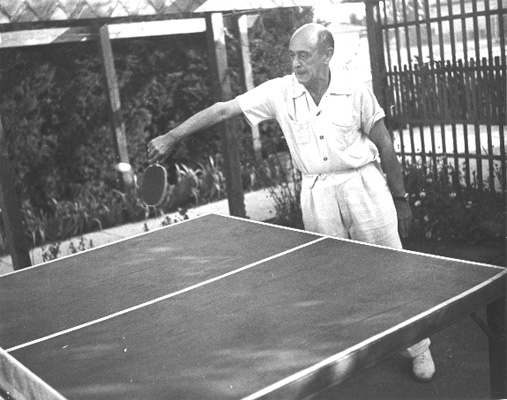American composer Tom Myron was born November 15, 1959 in Troy, NY. His compositions have been commissioned and performed by the Kennedy Center, the United States Holocaust Memorial Museum, the Portland Symphony Orchestra, the Eclipse Chamber Orchestra, the Atlantic Classical Orchestra, the Eastern Connecticut Symphony Orchestra, the Topeka Symphony, the Yale Symphony Orchestra, the Civic Orchestra of Chicago, the Bangor Symphony and the Lamont Symphony at Denver University.
He works regularly as an arranger for the New York Pops at Carnegie Hall, writing for singers Rosanne Cash, Kelli O'Hara, Maxi Priest & Phil Stacey, the Young People's Chorus of New York City, the band Le Vent du Nord & others. His film scores include Wilderness & Spirit; A Mountain Called Katahdin and the upcoming Henry David Thoreau; Surveyor of the Soul, both from Films by Huey.
Individual soloists and chamber ensembles that regularly perform Myron's work include violinists Peter Sheppard-Skaerved, Elisabeth Adkins & Kara Eubanks, violist Tsuna Sakamoto, cellist David Darling, the Portland String Quartet, the DaPonte String Quartet and the Potomac String Quartet.
Tom Myron's Violin Concerto No. 2 has been featured twice on Performance Today. Tom Myron lives in Northampton, MA. His works are published by MMB Music Inc.
FREE DOWNLOADS of music by TOM MYRON
Symphony No. 2
Violin Concerto No. 2
Viola Concerto
The Soldier's Return (String Quartet No. 2)
Katahdin (Greatest Mountain)
Contact featuring David Darling
Mille Cherubini in Coro featuring Lee Velta
This Day featuring Andy Voelker
|
|
|
|
| 
Tuesday, December 16, 2008
Mind Your Manner(ism)s

Mannerism or killer backhand? Schoenberg puts some English on the ball, Los Angeles, 1930s
Though originality is inseparable from personality, there exists also a kind of originality which does not derive from profound personality. Products of such artists are often distinguished by a unique appearance which resembles true originality. Certainly there was inventiveness at work when the striking changes of some subordinate elements were accomplished for the first time. Subsequently, used consciously, they achieved an aspect of novelty not derived profoundly from basic ideas. This is mannerism, not originality. The difference is that mannerism is originality in subordinate matters.
There are many, and even respectable, artists whose success and reputation are based on this minor kind of originality. Unfortunately, the tendency to arouse interest by technical peculiarities, which are simply added to the nothingness of an idea, is now more frequent than it was in former times. The moral air of such products is rather for success and publicity than for enriching mankind's thoughts.
-Arnold Schoenberg
Criteria For the Evaluation of Music (1946)
posted by Tom Myron
|
| |



